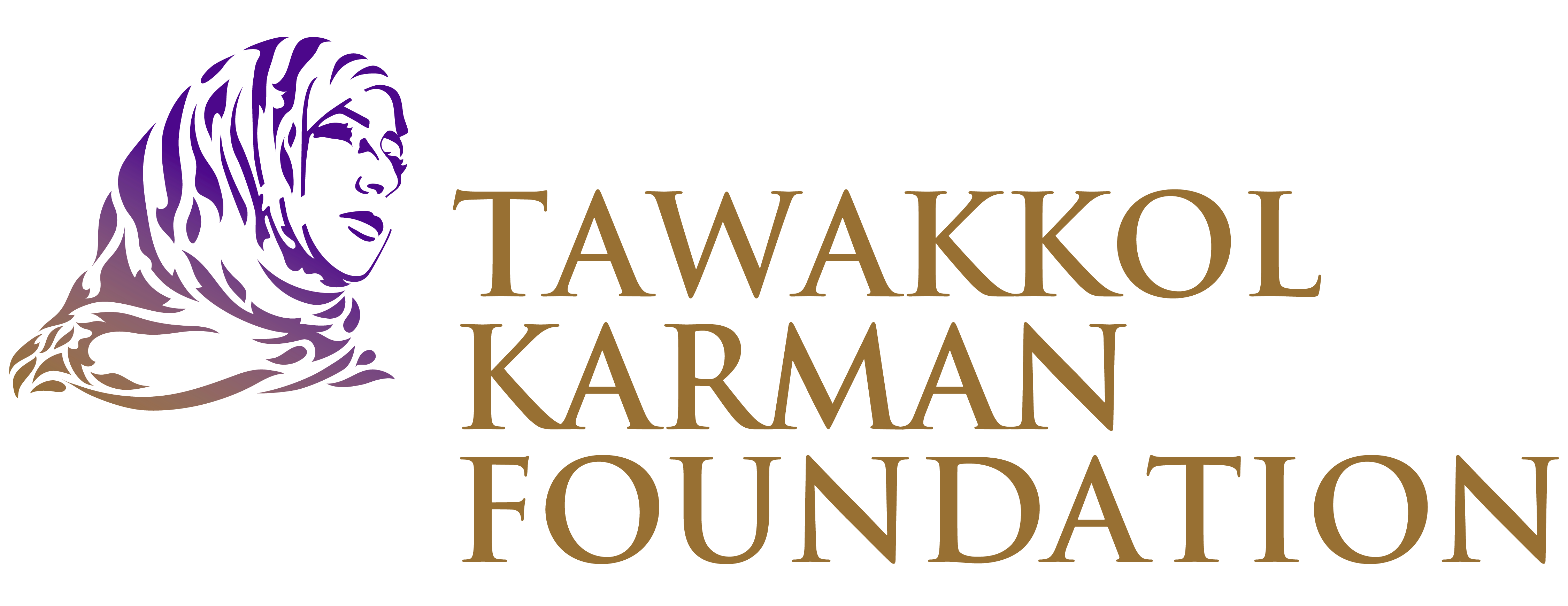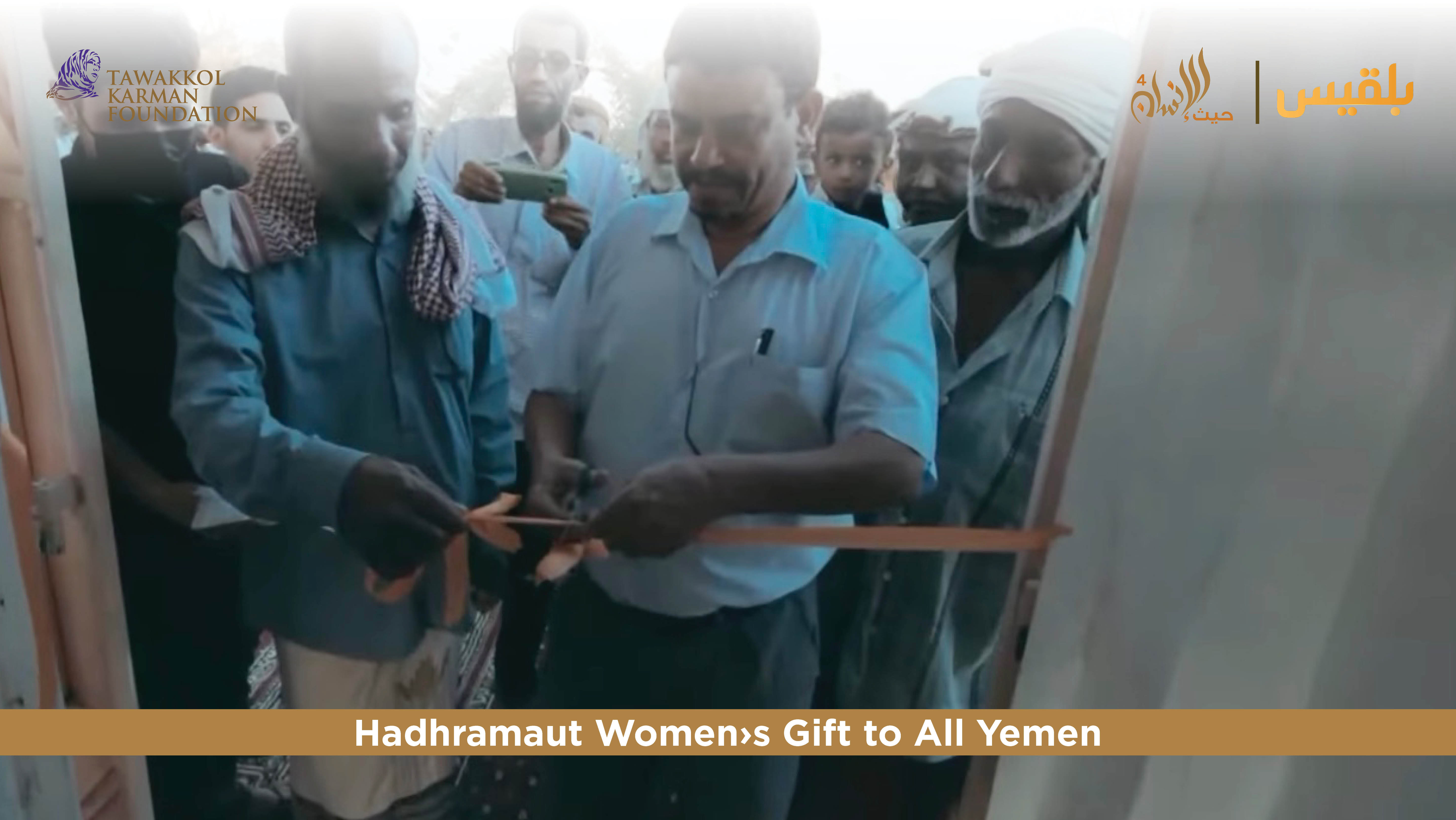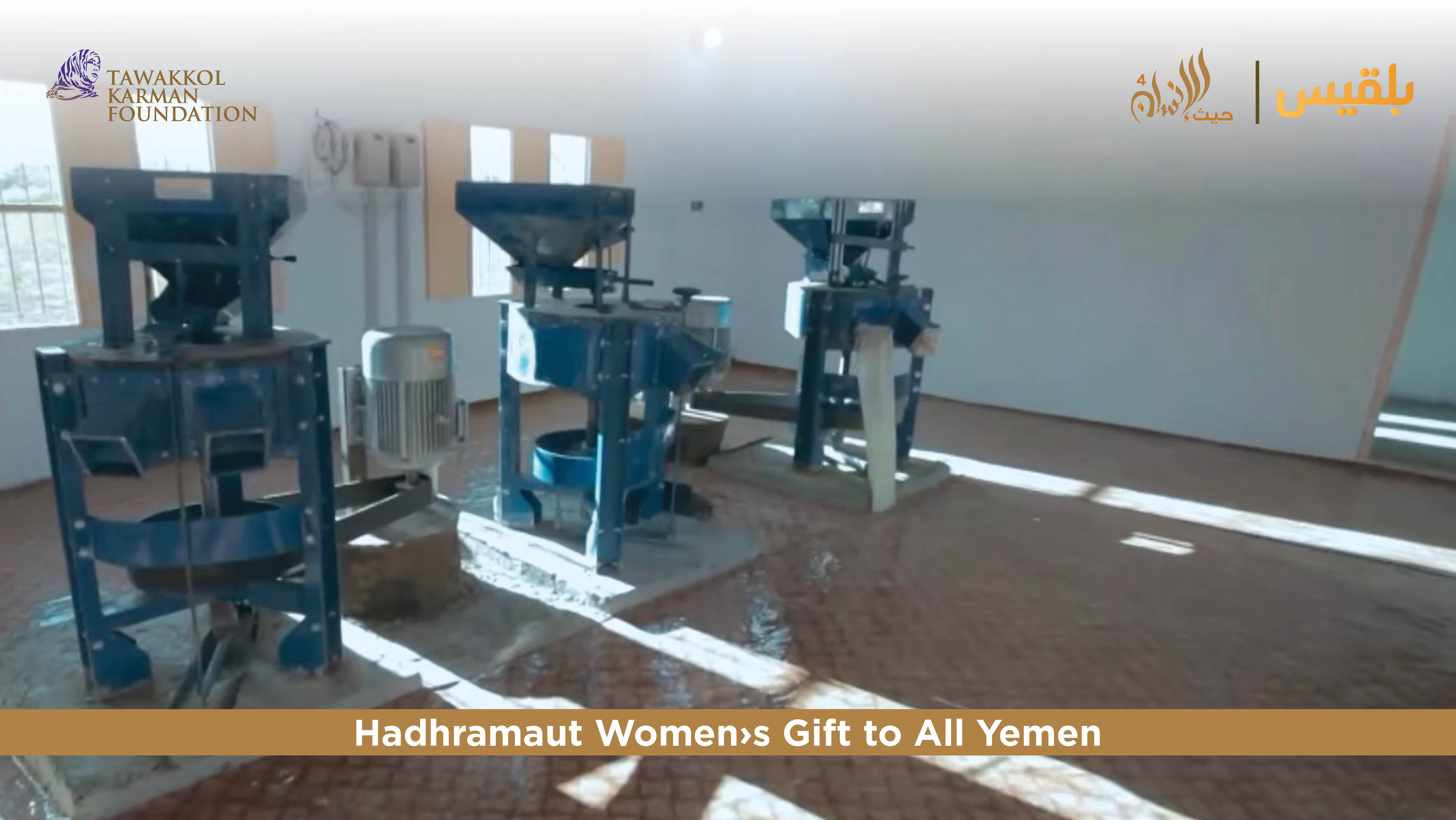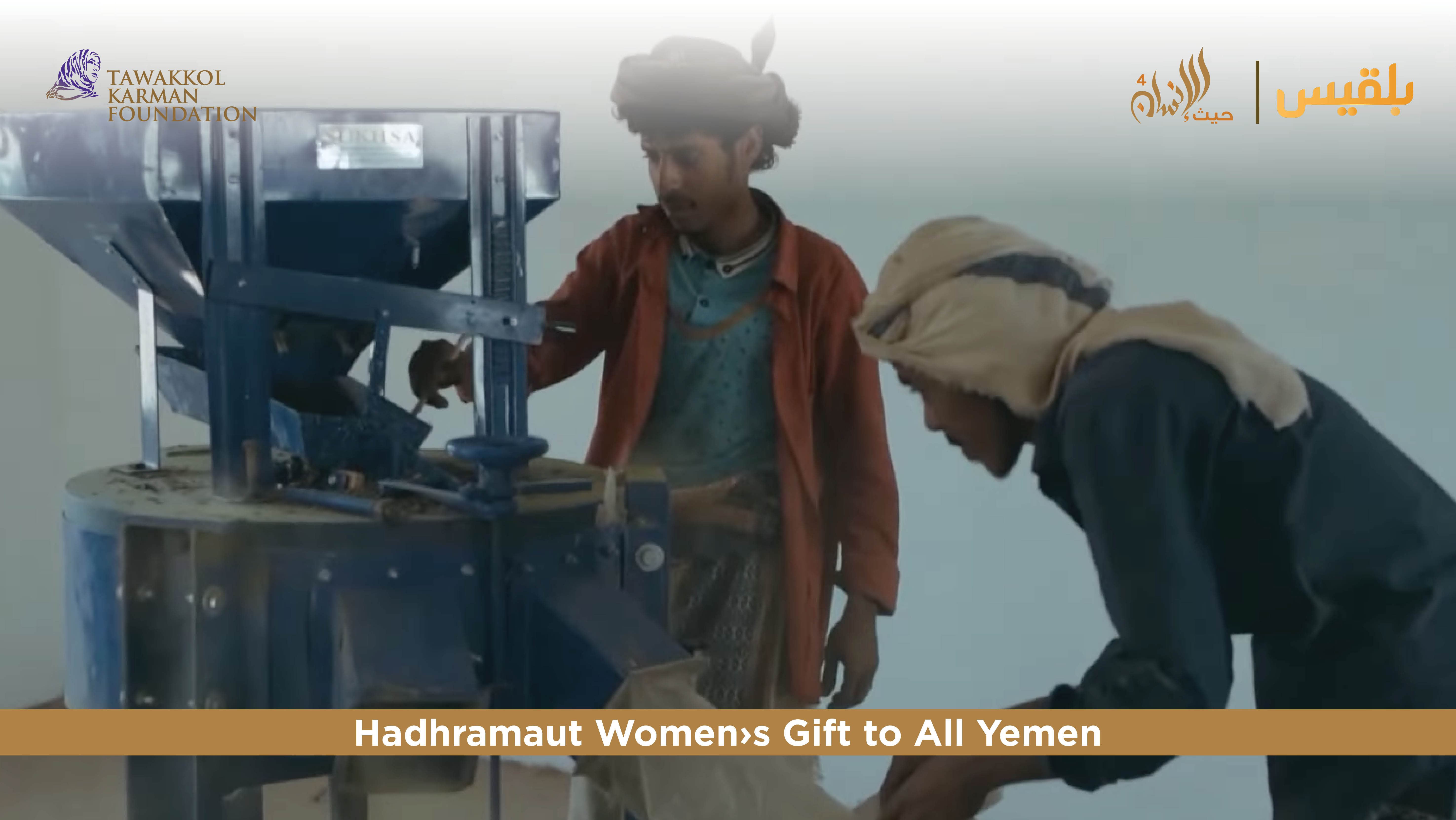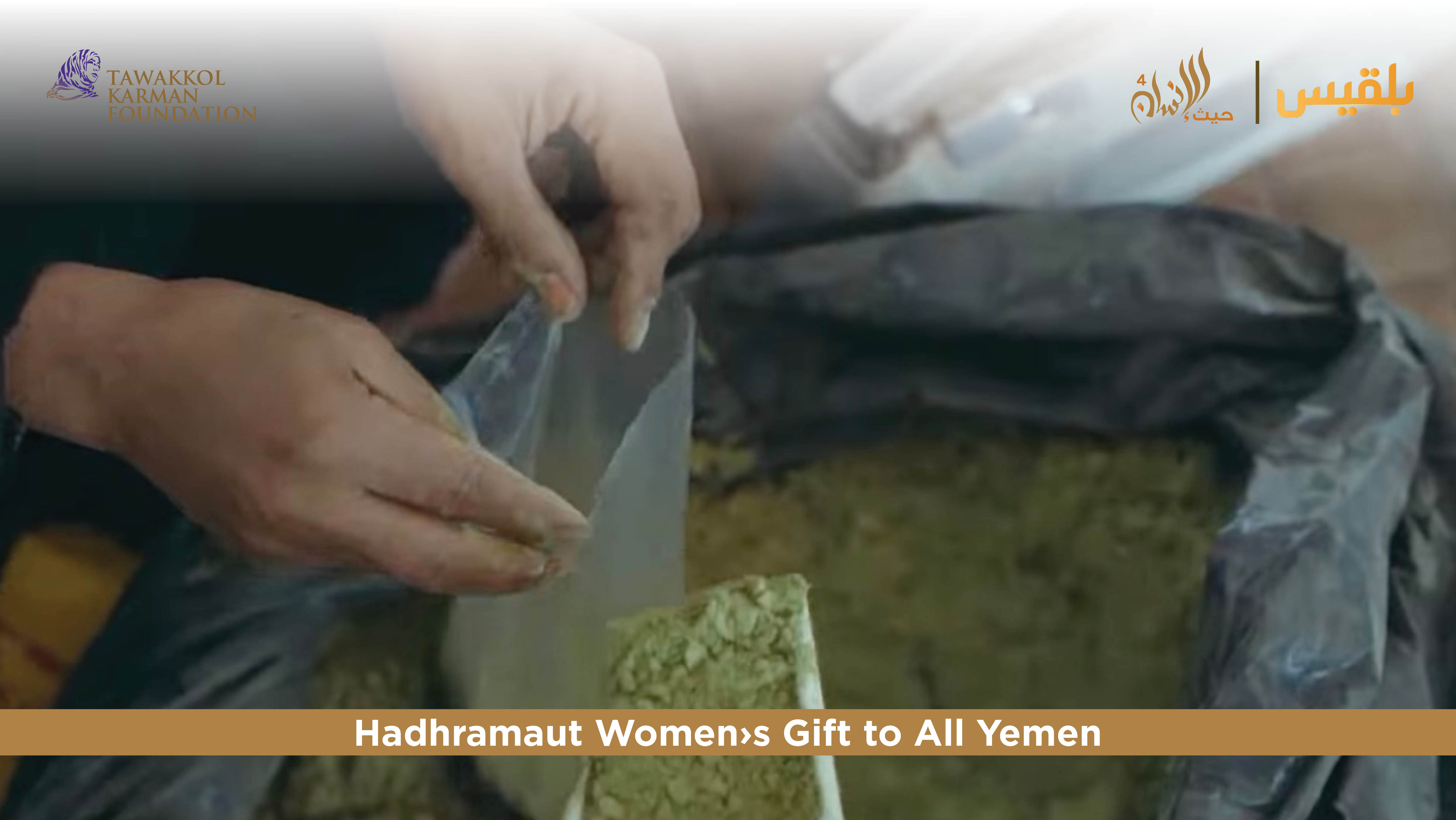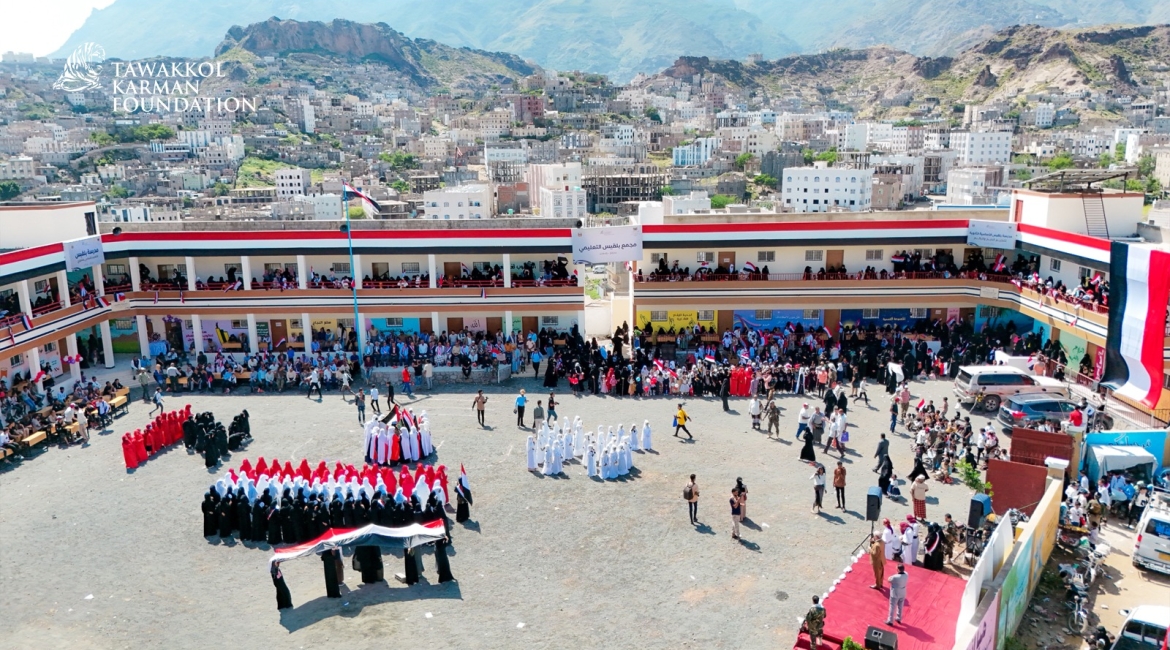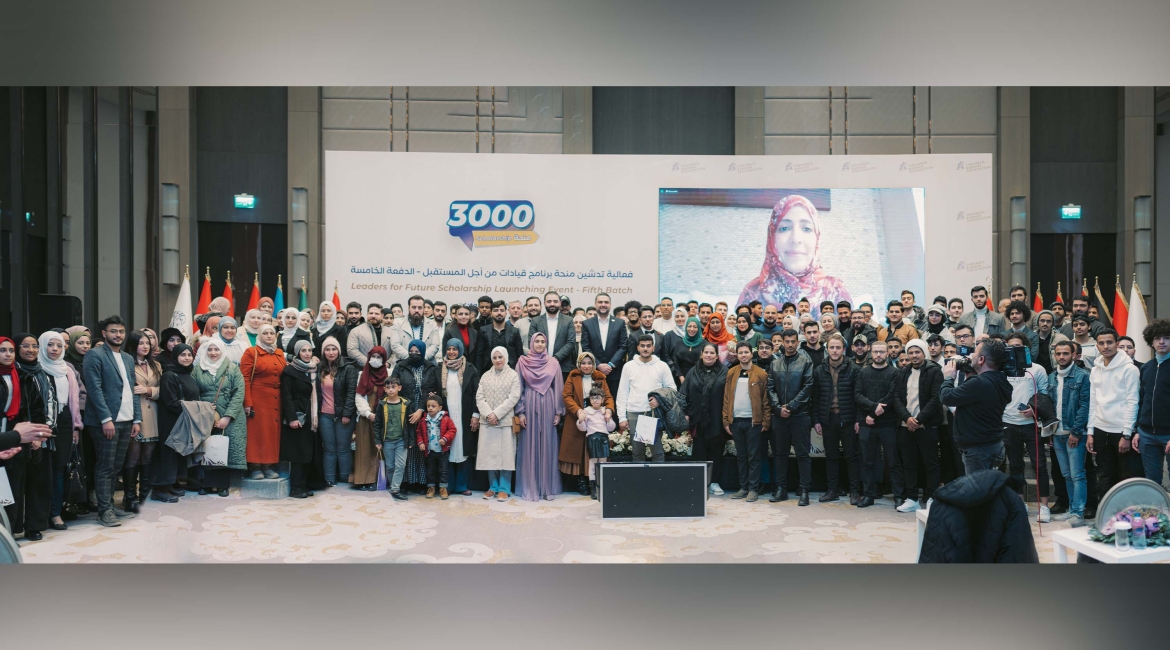As an encouragement and support for farmers in their work and better presentation of their products, the Tawakkol Karman Foundation provided farmers in Wadi Hadramout with a grinding, packing, and packaging factory for henna production, the first of its kind in Seiyun. The factor is managed and benefited by henna farmers and enables them to produce and export larger quantities. Farmer Salem Abed describes the suffering of henna farmers during the current situation as harsh due to the high prices and the crises of oil derivatives, as the price of a can of diesel rose to 21 thousand Yemeni riyals.
Salem says that the henna grinding mill consumes 40 liters of diesel per day, in addition to the change of oil monthly, noting that the price of fertilizer has also increased, and the price of a bag has reached 120,000 riyals. Because of these expenses, he was forced to grow onions on his other farm. The director of the Hadrami Al-Falah Association, Salih Bazaqamah, talks about the importance of henna farms in Hadramout and the fame that Hadrami henna enjoys as a gift for travelers to other provinces. Bazaqamah confirms that grinding and packaging henna is expensive and requires a large budget that the association could not provide, which prompts farmers to sell the quantities they produce of henna at lower prices, and forced them to refrain from cultivating henna.
The Tawakkol Karman Foundation intervened to provide a henna factory through “Haith Al-Insan” program, shown by Belqees channel during Ramadan. The project included building facilities for the factory and providing modern machines for grinding henna and another machine for packing and packaging.
Farmer Salem Abed describes the suffering of henna farmers during the current situation as harsh due to the high prices and the crises of oil derivatives, as the price of a can of diesel rose to 21 thousand Yemeni riyals, which is a high price for a simple farmer.
Salem says that the henna grinding mill consumes 40 liters of diesel per day, in addition to the change of oil monthly, noting that the price of fertilizer has also increased, and the price of a bag has reached 120,000 riyals, and because of these expenses, he was forced to grow onions on his other farm, which is less expensive.
The director of the Hadrami Al-Falah Association, Salih Bazaqamah, talks about the importance of henna farms in Hadramout and the fame that Hadrami henna enjoys as a gift for travelers to other provinces.
Bazaqamah confirms that grinding and packaging henna is expensive and requires a large budget that the association could not provide, which prompts farmers to sell the quantities they produce of henna at lower prices, and forced them to refrain from cultivating henna.
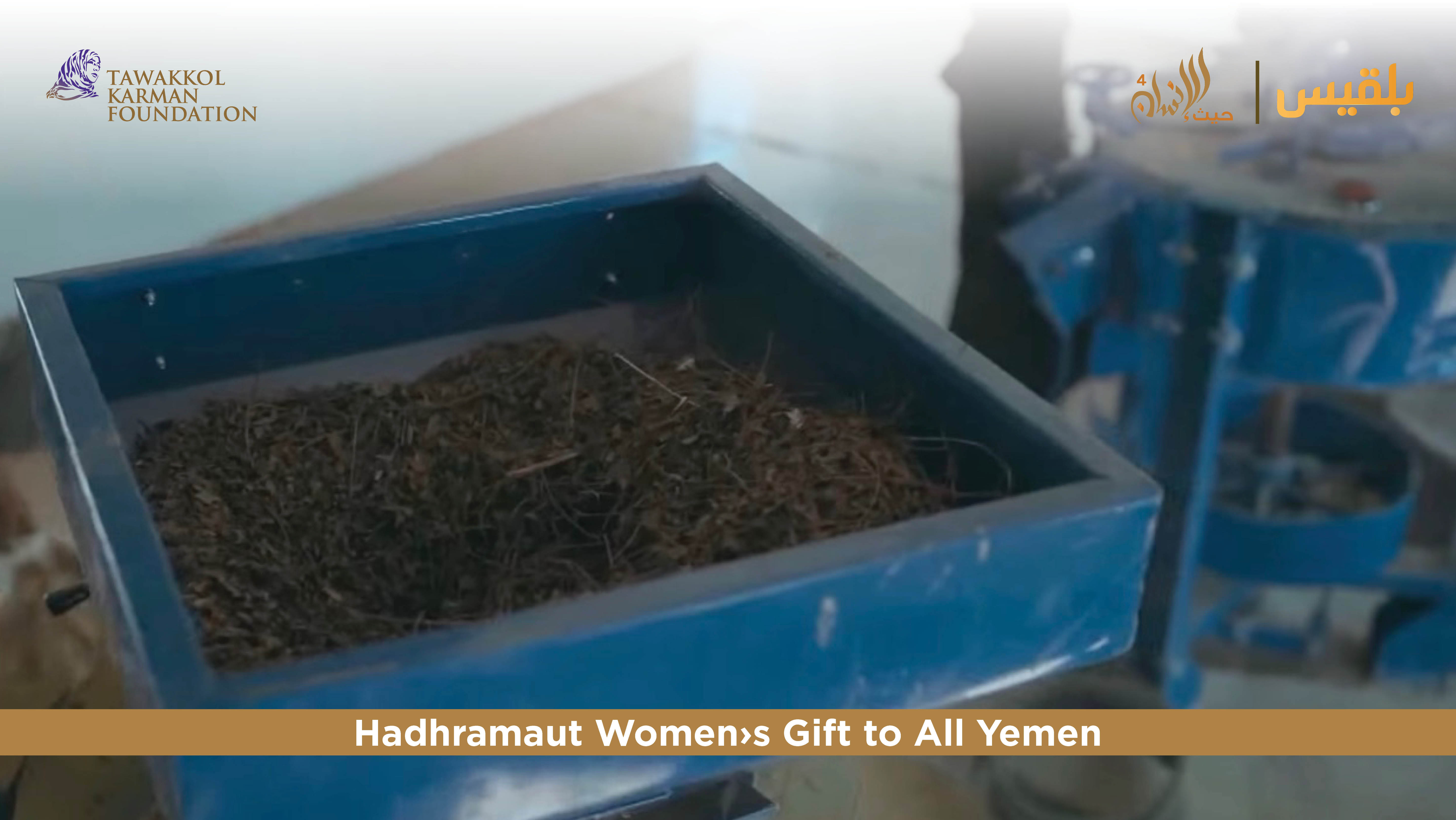
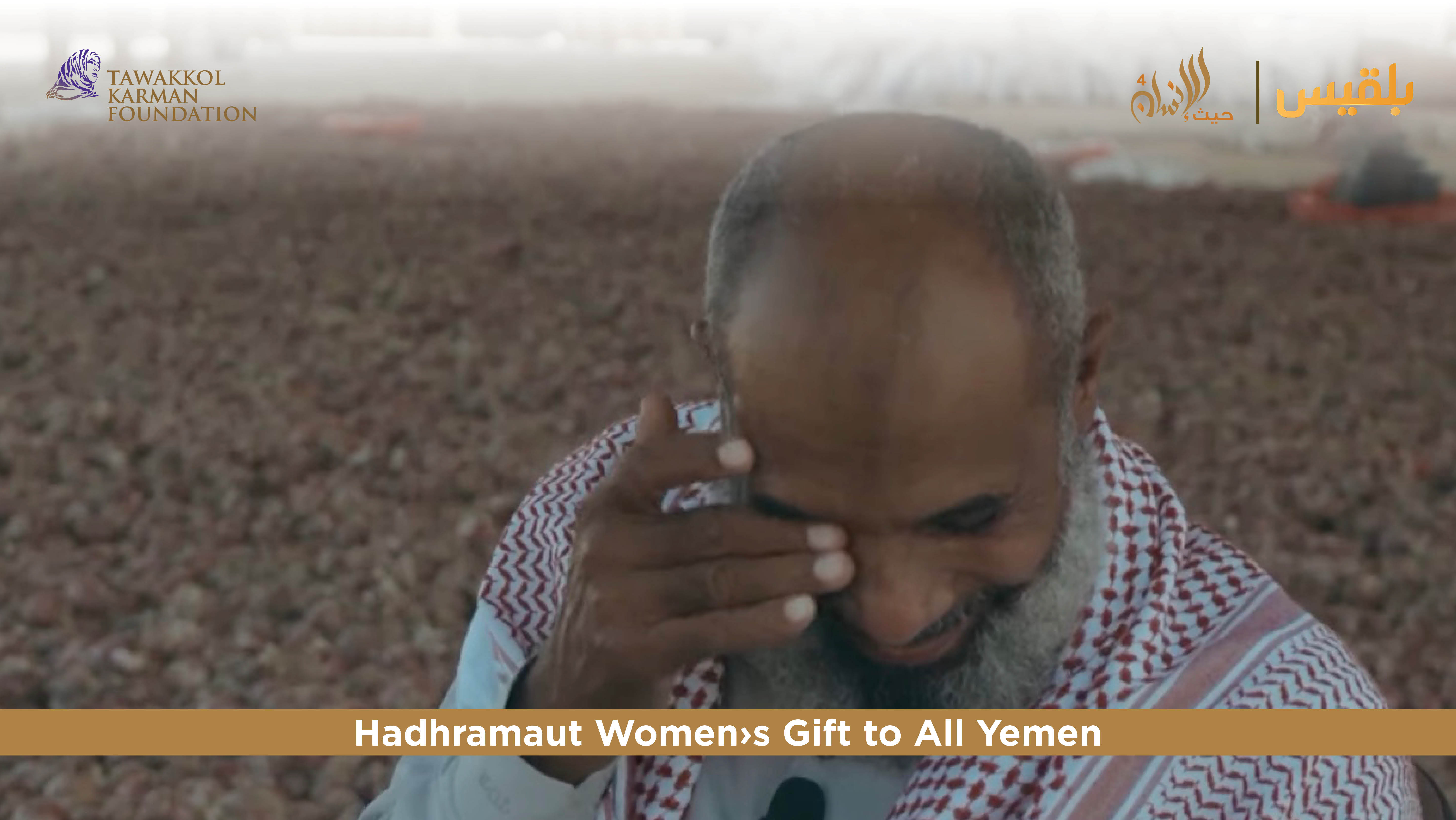
The Tawakkol Karman Foundation intervened to provide a henna factory through “Haith Al-Insan” program, shown by Belqees channel during Ramadan. The project included building facilities for the factory and providing modern machines for grinding henna and another machine for packing and packaging.
Regarding the project implemented by the Tawakkol Karman Foundation, Bazaqamah said that it represents an important economic resource and a source of livelihood for henna farmers in Wadi Hadramout.
The Henna Plant project for the benefit of farmers in Hadramout comes within the series of works of the Tawakkul Karman Foundation Development Program "Haith Al-Insan” in the fourth season, which was shown by Belqees channel during the month of Ramadan in 2022.
